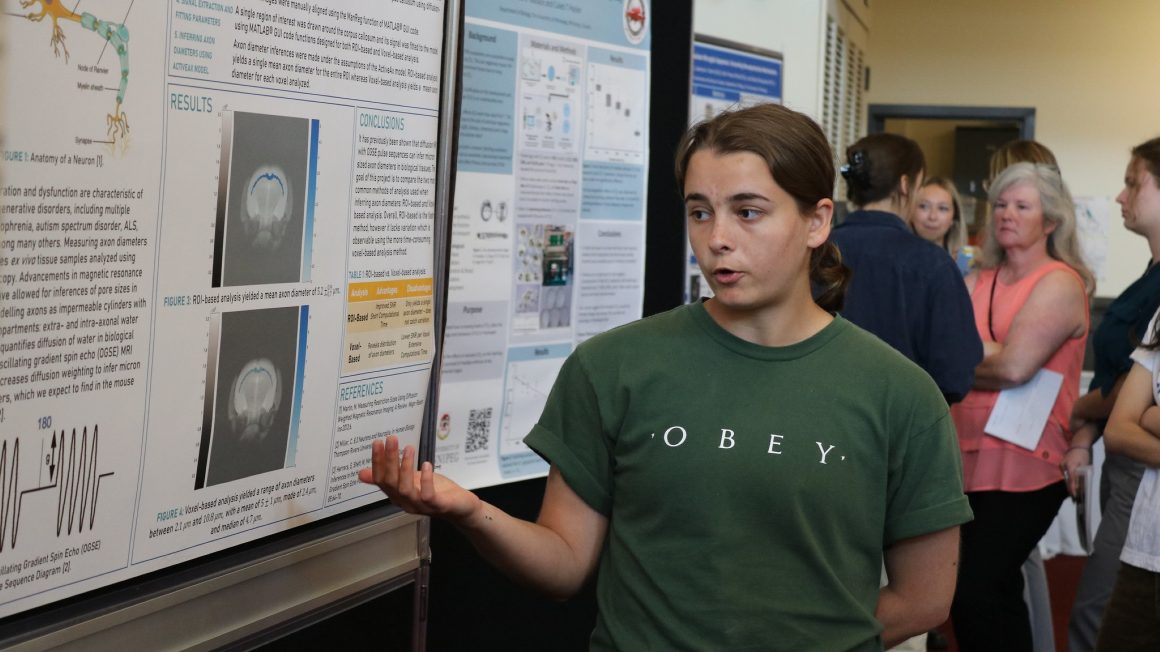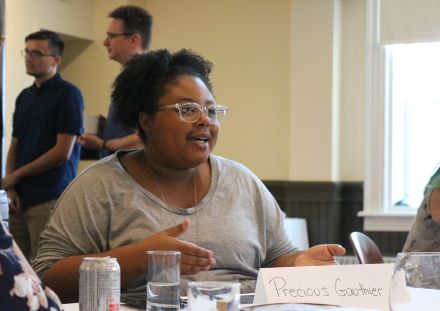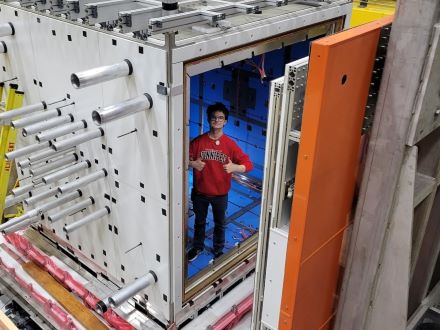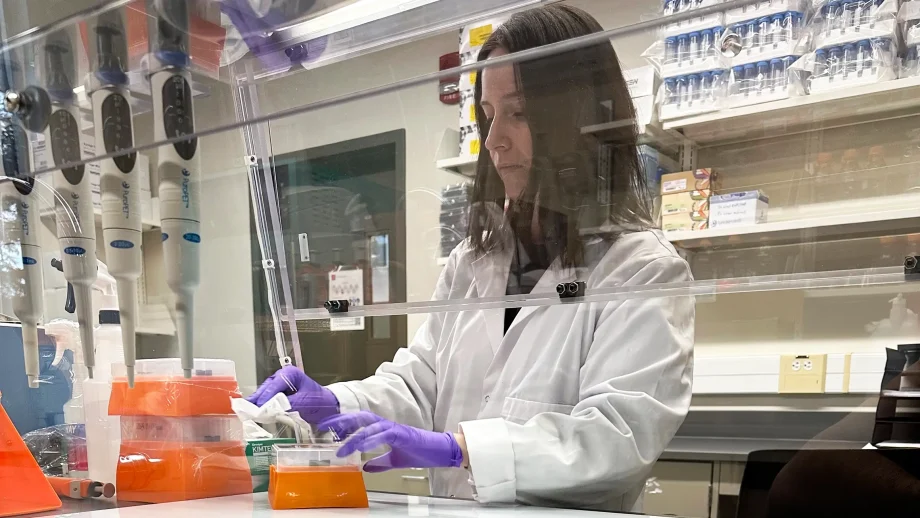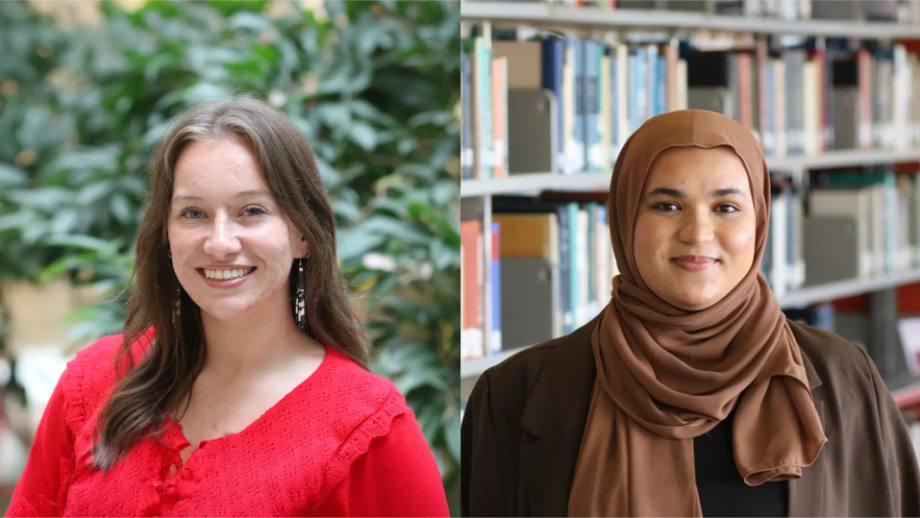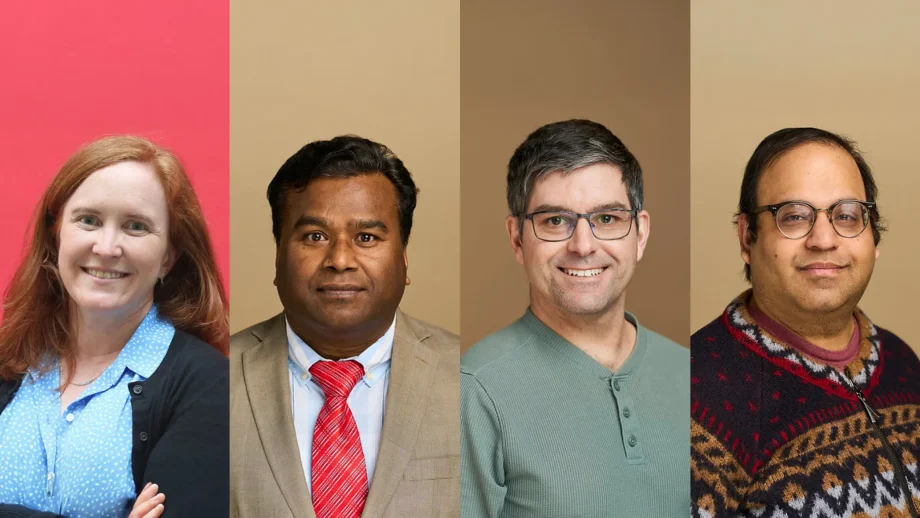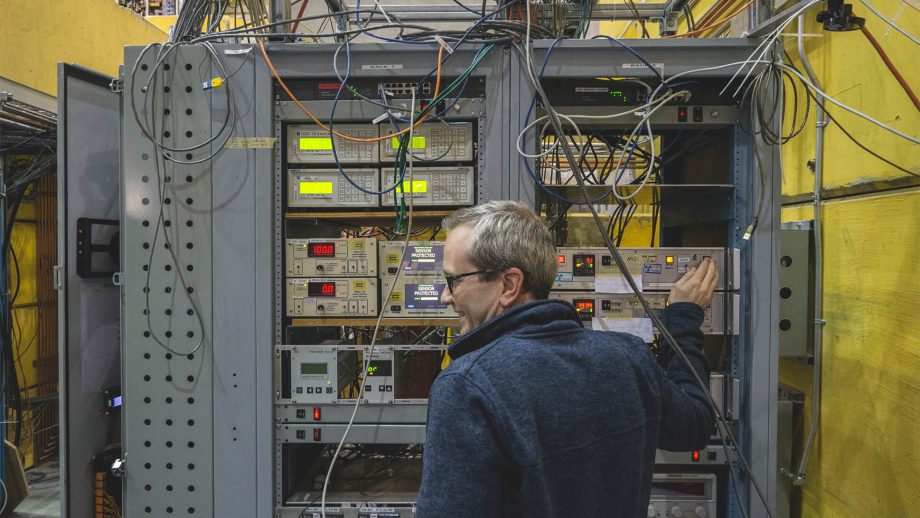Students at The University of Winnipeg are continuing to set the bar for undergraduate research with the support of faculty mentors and federal funding.
Last month, UWinnipeg held a special lunch and learn event to celebrate 42 students who received a 2023 Undergraduate Student Research Award (USRA).
The USRA program supports more than 3,000 students across Canada annually. It’s designed to stimulate student interest in research and to encourage them to undertake graduate studies and consider a research career in their chosen field.
I think all students should investigate summer research opportunities to help appreciate their course work and explore job opportunities.
Thomas Hepworth
Canada’s three research granting agencies—the Natural Sciences and Engineering Research Council of Canada (NSERC), the Canadian Institutes of Health Research (CIHR), and the Social Sciences and Humanities Research Council of Canada (SSHRC)—jointly administer the program.
Dr. Jino Distasio, Vice-President of Research and Innovation, told students he was “completely blown away” by the level of research on display. This year’s event had to be held in a larger room because UWinnipeg’s USRA allocation has grown considerably over the past decade.
Keynote speaker Dr. Caleb Hasler, Associate Professor and Chancellor’s Research Chair in the Department of Biology, reflected on his experiences as a research mentor and offered tips on building a meaningful and rewarding research career.
Students then broke out into table talks and poster presentations to discuss their research projects with fellow students and faculty members.
Precious Gauthier – English
USRA funding from SSHRC enabled Precious Gauthier, a fourth-year English major, to compile an annotated bibliography that will serve as a foundation for further studies.
“The purpose of my research was to understand the silencing and erasure of Black histories in Canada, and to inform on the anti-Black racism experienced by people in Canada,” Gauthier said. “It’s a huge part of our history that you don’t know unless you go looking for it.”
Gauthier’s research involved sifting through archival material on historical migration patterns and her own family’s oral history accounts.
Her faculty mentor, Dr. Chigbo Anyaduba, Associate Professor in the Department of English, shared a list of readings that contextualized and guided Gauthier’s learning.
“I’d taken classes with him in the past, and so he already knew what my interests were,” Gauthier said. “He actually approached me about this opportunity and said that my interests would be perfect for this.”
The project left Gauthier with a better understanding of anti-Black racism in Canada.
“This is an area that I’ve had an interest in throughout my undergrad,” Gauthier said. “I often write about either the migration of Black people from Oklahoma to the Prairies, or intersectionality and the disparities in education and medical care.”
She found the Canadian education system often downplays the role that racism played in the founding of the nation. She sees storytelling—once considered an unscholarly medium—as one way to preserve and pass down those stories. She hopes that one day her research will enable her to help correct the historical record.
Gauthier plans to enter the Master of Arts in Cultural Studies program after completing her bachelor’s degree next spring. She said her USRA research helped her hone valuable research skills like how to access archives and how to structure and compile historical records.
Thomas Hepworth – Physics
USRA funding from NSERC enabled Thomas Hepworth, a third-year physics major, to travel to TRIUMF, Canada’s particle accelerator centre in Vancouver, B.C.
Hepworth’s research focused on the magnetically shielded room (MSR) used by the TRIUMF UltraCold Advanced Neutron (TUCAN) collaboration to house their neutron electric dipole moment experiment.
“A magnetically shielded room enables the stability and precision of a field, required for the experiment to happen,” Hepworth said.
His research involved writing software and running simulations to determine how to characterize a magnetic field inside an unmeasurable space.
“If you’re shielding magnetic fields, that’s great, but if you don’t precisely know the field inside of the MSR it provides little value to your experiment,” he explained.
Hepworth conducted software simulations and mathematical calculations in Winnipeg, and travelled to TRIUMF to take measurements alongside his faculty mentor Dr. Russell Mammei, Associate Professor in the Department of Physics.
“I had a great time working for Dr. Mammei,” Hepworth said. “This was actually my second summer working for him. He provides a good structure for working and learning.”
Hepworth said the experience improved his research skills, including time management, computer programming, experiment design, and how to recover from a setback. The networking that occurred at TRIUMF was also valuable.
“It was nice to be in this place with people from all over the globe working on different projects with a common goal of advancing science,” he said. “I think the best thing is that now I could reach out to these people I have met at TRIUMF for advice or future research opportunities.”
Hepworth recommends the USRA program to others.
“I think all students should investigate summer research opportunities to help appreciate their course work and explore job opportunities,” he said.
______________________________________________________________________________
To learn more about the Undergraduate Student Research Awards, visit NSERC’s website.

